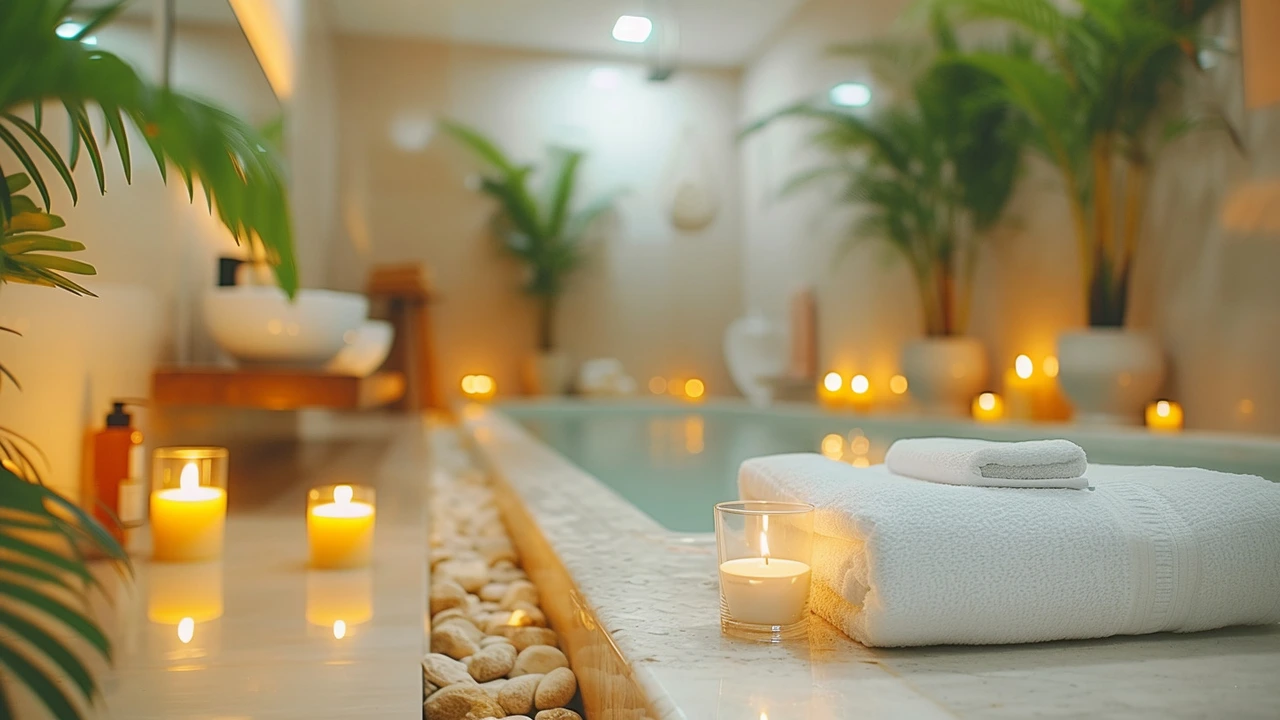The Healing Touch of Reflexology: A Closer Look
 Aug, 2 2023
Aug, 2 2023
Unwrapping the Mystery: What is Reflexology?
When reflexology is brought up in conversation, many people envision a pleasant foot massage or, even worse, believe it's something akin to tickle therapy. But, I assure you, it goes much deeper than that. Imagine a system, a specific kind of therapy that could potentially connect with every organ, tissue, and cell in your body through the soles of your feet. Fascinating, isn't it? Welcome to reflexology, it's no mere foot rub; it's an ancient healing practice steeped in thousands of years of human history.
Built on the belief that distinct areas of the feet, hands and ears correspond to different body organs and systems, reflexologists work these points and areas to bring about physical change in the body. The Egyptian tomb artwork traces this therapeutic technique back to 2,330 B.C. with pictures of hand and foot massages. Now, if you're curious about how exactly it works, we'll dive deeper into the science behind it further on.
The Science Behind Reflexology: Not Just Your Regular Foot Rub
Give me your foot, and I'll talk to your liver," a reflexologist might say, and no, they're not practicing ventriloquism. What might initially sound ludicrous is backed up with an intriguing rationale. Our nervous system is an extensive communication network, a vast field of electrical cables if you may, constantly sending and receiving messages about how our body's various parts are functioning. Certain parts of the foot, hand, or ear (reflex points) are believed to correspond to different body parts, organs and systems. So, when a reflexologist applies pressure to these reflexes, the theory suggests that they're sending energy flowing through the nervous system, breaking up any blockages and promoting overall health and relaxation.
Reflexology Benefits: Is there More to it?
You're probably wondering, "Can pressing my feet really affect my overall health?" This is where the line blurs between naysayers and advocates. To tell you the truth, scientific evidence looking into reflexology is mixed. Some studies found that it might reduce pain and psychological symptoms, like stress and anxiety, and enhance relaxation and sleep. However, others didn't see any significant changes.
Spotting Reflex Points: A DIY Guide
Learning to identify these reflex areas that correspond to the different parts of your body can be an interesting, albeit somewhat ticklish, self-quarantine hobby. Would you like to address a splitting headache or a tense shoulder but couldn't get yourself a massage appointment? Not to worry, with a bit of practice and a good reflexology map (there are a plethora of them available online), you could target tricky spots yourself. Be warned, though, solo-reflexology sessions can lead to much ankle-twisting hilarity.
What to Expect During a Reflexology Session?
Getting your first reflexology session can be a curious event. You show up, they ask you to recline on a plush chair, remove your socks, and then the reflexologist begins to work their magic. To a person sitting at a distance, it might just look like an intense foot massage, but I assure you, the therapist is tracing pathways throughout your body. Some areas of your foot might buzz with a unique sensation when pressure is applied. All in all, it's a pleasantly relaxing experience not to be missed.
Demystifying Reflexology Myths: Dispelling the cloud of Ignorance
One of the most commonly believed myths about reflexology is that it's painful. "Oh, I can't stand someone touching my feet!" I've heard this numerous times from my friends. The truth is, reflexology shouldn't be painful. The reflexologist adjusts the pressure according to your comfort level. Another myth is that reflexology can heal any health conditions - not entirely true. It aids in relaxation and can complement your overall well-being while you're getting treated for an illness, but reflexology is not a standalone cure.
A Personal Touch: My Reflexology Experience
If you'd allow me, I’d like to share a little personal story. About a year ago, dealing with the pressures of work and personal life, I was, to put it mildly, a human stress ball. A friend recommended that I try reflexology. Skeptical but willing, I dived in. I won't lie, the first session felt odd, having someone press on different points of my foot, but soon I was hooked. The sense of relaxation and tranquillity that blanketed me after each session was too good to dismiss.
My Final Walkthrough: What to Remember about Reflexology
So, if you're someone who enjoys exploring different wellness strategies, or perhaps looking for a new way to relax, Reflexology could be a wonderful experience. Remember, it’s no magic cure-all, but it does potentially offer a path to better relaxation and stress reduction. And trust me, there's a certain joy in discovering that your entire body could be accessed through your feet!